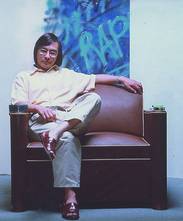
Mark Foster, conductor (Ensembles)
Born in Australia in 1957, Mark Foster studied the piano and composition at the Music Academy of Music. Prize winner of the Deutscher Akademischer Austausch Dienst he perfects his studies in Munich and begins to compose music for films. In 1980, he joins the Zürich Opera House as assistant, and then the Berlin States Opera where he remains until 1983. He collaborates there most particularly with Giuseppe Sinopoli, Jesus Lopez-Cobos, Daniel Barenboim and Armin Jordan. In 1983, Mark Foster is contracted by the Opéra de Lyon as Director for Musical Studies, and jointly with the conductor Peter Eötvös managed the conducting sessions at the Bartók Festival (Hungary). In 1985, Mark Foster created his own orchestra dedicated to contemporary music and called Ensemble Forum and joined Emmanuel Krivine at the lead of the Orchestre Français des Jeunesse. Immediately, Mark Foster is engaged by many important European orchestras involved in the contemporary repertoire: Westdeutscher Rundfunk Orchestra in Cologne, Orchestra della RAI in both Milano and Torino, Radio Sinfonie in Berlin, the Collegium Musicum in Zürich, the ASKO Ensemble in Amsterdam, and both Radio Chamber and Radio Symphony Orchestras in Hilversum, with whom he maintains a close collaboration since 1990.
In France, where he is established for years, Mark Foster conducts regularly the Orchestre Philharmonique de Radio-France, the Orchestre National de France, Ensemble Intercontemporain, and Philharmonic Orchestras of Lyon, Lille, Strasbourg and Monté-Carlo. Mark Foster has been appointed musical director of the Orchestre des Pays de Savoie (Chambéry) in 1993 and was also first guest conductor at the Villa Medici in Roma.
Mark Foster is invited by many important festivals such as MUSICA in Strasbourg, Holland Festival, Festival de Radio-France et de Montpellier, Festival of Alicante, Geneva, Antidigma Festival in Torino and Züricher Festwochen.
In the opera field, Mark Foster has conducted important productions in France, always also in the XXth century repertoire including: Vollo di notte by Dallapiccola and L’heure espagnole for the Opéra de Montpellier, Poulenc’s Dialogues des carmelites at the Bordeaux Opera and recently L’appel de le mer by Rabeau, Phaedra by Britten and La voix humaine by Poulenc at the Nancy Opera.
